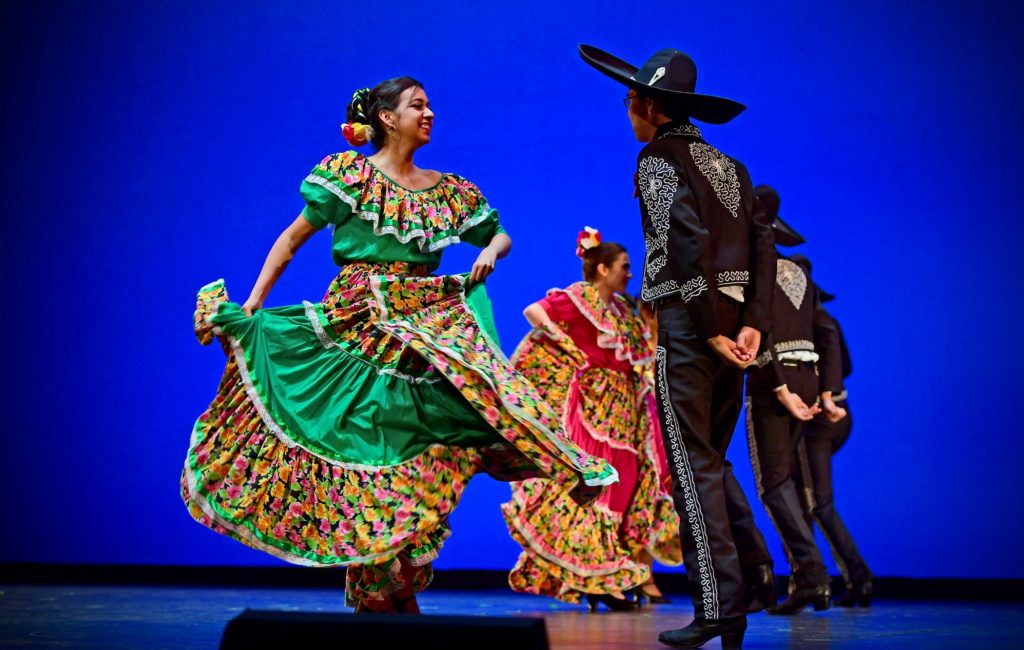
Anabel Medrano hesitated to join the Association of Latin American Students when she arrived at Washington University in St. Louis. She came here, after all, for the pre-med curriculum, not the clubs.
“I didn’t want to be locked into one group,” said Medrano, an Annika Rodriguez Scholar studying biology and Chinese in Arts & Sciences. “But actually, the opposite has happened. ALAS has opened a lot of doors. I’ve been introduced to so many other students with different experiences and interests and backgrounds.”
Today, she serves as co-chair of Carnaval, ALAS’ annual production that celebrates Latino culture and explores the challenges of Latino students. This year’s show features some 160 student dancers and actors.
Medrano’s own background is unique. She was born in Mexico and moved to North Carolina with her family as a child. Her dad had legal status; she did not. Only after her father obtained citizenship was Medrano able to apply to become a citizen as well.
“Somehow my status never affected my education,” said Medrano, who will apply to medical schools after graduation. “I always loved school. So when a Latino WashU alum came and spoke to our Hispanic Cultures Clubs and told me to apply, I thought, ‘Yes, I should dream big.’”
Here, Medrano explains ALAS’ enduring role on campus, what it’s like to be a symbol of America’s ongoing immigration debate and the joy of Latin dance.
What does it mean to be a member of ALAS?
You can be you in ALAS. Our suite in the Women’s Building is one of my favorite places on campus. We can listen to Spanish and everyone will sing along. Though, of course, we don’t all share the same culture. Our foods aren’t the same; many words are not the same. But one thing many of us do have in common is that we are immigrants or have immigrant parents, so it’s important to have friends that you can share that experience with.
Our nation is embroiled in a debate about immigration. To the members of ALAS, this debate is neither new nor theoretical. How does Carnaval address this conversation?
I don’t want to give much away, but the skit is actually more relevant than we set out for it to be — which I think goes to show how persistent this issue is. I will be honest, it’s been really exhausting explaining these issues over and over again this year. I am proud to be able to put a human face on the stories people read and hear on the news. That said, sometimes I just want to be a student.
Is Carnaval open to student performers who are not Latino?
Absolutely. There are 150 dancers, and only 20 or so would identify as members of that culture. We invite the entire WashU community to audition. And you don’t need any prior dance experience; we teach the dances from scratch. Our dancers love the experience because it is so much fun and they get so close to their dance. But it’s also an opportunity to be part of a larger conversation. Even ALAS members audition for dances of different cultures. This year, I’m doing bachata, a dance of the Dominican Republic. But in the past, I have done folklorico, a more traditional Mexican dance. My parents were always worried that, growing up in America, I would lose my connection to the Mexican culture. So participating in Carnaval is a way to show them that my Mexican culture is still a very big part of who I am.